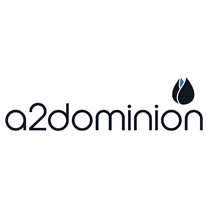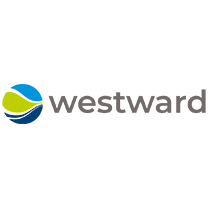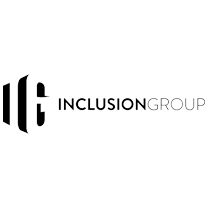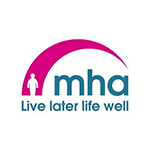Understanding the Housing Repairs Lifecycle
Streamline housing operations with technology
Improve tenant satisfaction and team coordination
Increase repair transparency and regulatory compliance
Quick Navigation
- Home
- »
- Housing Resources
- »
- Understanding the Housing Repairs Lifecycle
The Full Picture: Why the Repairs Lifecycle Matters
In social housing, repairs aren’t one-off events—they’re part of a wider, repeating cycle that touches every corner of your organisation. From the moment a tenant logs an issue to the final quality check, each step in the housing repairs lifecycle affects outcomes, expectations, and experience.
Done well, this process builds trust and delivers safe, well-maintained homes. Done poorly, it causes frustration, reputational risk, and regulatory exposure.
So what does the full lifecycle look like—and how can technology improve every stage?
Every repair is more than a task — it’s a moment of truth between resident and landlord.
Stage 1: Reporting the Issue
This is the first moment of contact. A tenant notices a leak, a broken window, or a faulty boiler. How easy is it for them to report it?
In many organisations, this is still a bottleneck—relying on long phone queues or outdated paper forms. But with the rise of self-service repairs portals, tenants can now log issues 24/7, upload photos, and choose convenient time slots.
This not only improves the user experience but creates more accurate repair records from the outset.
“Fewer touchpoints. Better data. Faster triage.”
Stage 2: Categorising and Prioritising
Once a report comes in, the next step is deciding how serious it is:
Is it an emergency?
Is it routine?
Does it relate to recurring problems?
This is where asset-linked repair systems come into play. When repair histories are connected to individual properties, teams can quickly spot patterns and prioritise accordingly. It prevents repeat visits and ensures vulnerable tenants aren’t left waiting.
Stage 3: Scheduling and Assignment
With the repair assessed, it’s time to schedule an operative or contractor. In legacy systems, this is often handled manually—leading to gaps, delays, and double-bookings.
But with modern housing repairs technology, jobs can be automatically assigned based on:
Contractor availability
Operative skill sets
Tenant preferences
Through contractor repair portals, external teams can view schedules, confirm appointments, and update status—all in real-time.
Stage 4: Execution and Updates
On the day of the visit, communication is key. Will the tenant be home? Has the operative been briefed? Are the right parts available?
This is where digital transformation truly shines. Systems that support real-time status updates—like “on route,” “awaiting parts,” or “job complete”—help everyone stay informed.
Not only does this reduce “no access” visits, but it strengthens accountability across the board.
Stage 5: Completion and Feedback
Once a job is completed, the final stage kicks in. The repair is signed off, and the tenant is invited to share feedback.
Whether it’s a satisfaction survey, a follow-up call, or a digital form, this stage offers vital insight. It also helps flag incomplete work or unresolved issues before they escalate.
Modern platforms feed this data back into your broader repairs management in social housing process—closing the loop with clarity and context.
The Role of the 4Ts
As highlighted by the Housing Ombudsman, effective repairs delivery is not just about ticking boxes. It’s about how providers engage with residents throughout the entire journey.
Their ‘4Ts’ framework sets a benchmark for service quality:
Timely – Repairs must be addressed within a reasonable and agreed timeframe.
Transparent – Tenants should be kept informed at every stage, with no hidden delays.
Tailored – Services must adapt to individual circumstances, including vulnerabilities.
Tone – Communication should be respectful, empathetic, and clear.
Embedding the 4Ts into each stage of the housing repairs lifecycle helps ensure not just operational success—but long-term trust, accountability, and fairness.
Why the Lifecycle Matters
The full social housing repairs process involves more than just bricks and mortar. It’s about how information moves between people, teams, and systems.
When each stage works in isolation, problems arise:
Missed appointments
Lost records
Duplicate jobs
Resident frustration
But when each step is digitally connected, the result is a streamlined, responsive, and tenant-focused service.
Embedding Compliance and Insight
With increased scrutiny from the Housing Ombudsman and evolving legal duties, the ability to track, timestamp, and audit every repair is now a baseline requirement.
That’s why many providers are adopting housing repairs compliance software to ensure:
SLAs are met
Updates are recorded
Residents are kept informed
It’s no longer about just doing the work—it’s about proving it was done fairly, transparently, and on time.
A Continuous Cycle of Improvement
One repair might seem small. But over time, repairs data becomes strategic:
Where is demand highest?
Which contractors underperform?
What repairs cost most over time?
With the right tools, the housing repairs lifecycle becomes a source of intelligence, not just admin.
“Every repair is a data point. And every data point is an opportunity to improve.”
Explore More About
Repairs Management Module for Housing or Properties
Propsys360
Key Features of our Propsys360
Housing Management Software Product

Award Winner of Building Safety Initiative of the Year Award (Golden Thread), as technology partner of Notting Hill Genesis

ANY DEVICE

ANY TIME

ANYWHERE

ONLINE OR OFFLINE
Propsys360 Housing Management System
- Integrated
- Seamless
- Modular
- End-to-End
Propsys360 empowers social housing with streamlined property operations, advanced technology, and focused resident support through a comprehensive housing management system, integrating property management software and tenant management solutions for future-proof housing management.

Service Charges
Automate service charges with cutting-edge property management software for rental properties, improving transparency, boosting tenant trust, and enhancing efficiency.

Unified Regulatory Reporting Tool
Streamline reporting, ensure compliance, enhance governance with real-time reporting and document management software, enhancing governance with Propsys360.

Repairs Management Module
Efficiently handle repairs with rental property management software to protect property value and enhance tenant satisfaction.

Asset Management
Leverage asset management software to centralise data, improve regulatory compliance, and enhance operational efficiency seamlessly.

Case Management
Enhance governance with case management system software to streamline operations and boost tenant satisfaction.

Sales, Lettings, Allocations & Voids Management Module
Manage sales, lettings, allocations, and voids with comprehensive tenant management software, reducing vacancies and enhancing tenant communication.

Contractor Portal
Improve collaboration with contractors using contractor management systems, ensuring real-time updates and performance analytics.

Payment & Arrears
Utilise landlord accounting software and AI-driven payment systems for proactive arrears management, empowering tenants with seamless solutions.

Customer Portal
Transform tenant experiences with customer management software, offering a modern, tenant-focused housing service portal.

Damp & Mould
Manage damp and mould issues efficiently with property maintenance management software, integrating IoT for better control.

Stock Condition Survey
Revolutionise property insights with advanced housing management software for property condition surveys and analytics.

Tenancy Management
Streamline operations with property management software for landlords, ensuring regulatory compliance and improving tenant engagement.
The Neo Technology model allows us to scale our development capacity, accelerating our transformation programmes while future-proofing our business while achieving substantial industry cost savings.
Their integrated agile project teams deliver across a range of business requirements in partnership with our Product Owners, such as System Enhancements, Data Integration & Cloud Migration, enabling Notting Hill Genesis to accelerate our digital transformation goals.

In partnership with Neo Technology, we have enhanced this solution by leveraging the capabilities of Azure Integration Services. This integration enables seamless agent engagement and efficient work status sharing between the Omnichannel system and our SaaS-based work allocation platform.
The successful deployment of this solution has significantly increased transparency and improved the operational efficiency of our contact centre, allowing us to deliver greater value to our customers.
This achievement was made possible through the expertise and dedication of Neo Technology. We extend our sincere thanks to Neo Technology for their invaluable support.











